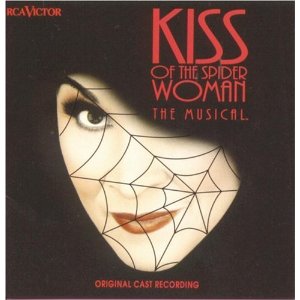 By Jae-Ha Kim
By Jae-Ha Kim
Chicago Sun-Times
February 15, 1996
Kiss of the Spider Woman
Through Sunday
Chicago Theatre, 175 N. State
Tickets, $41.50-$60.50
(312) 902-1500
Recommended
Chita Rivera is charismatic and spellbinding in the lead role.
Chita Rivera made a triumphant return Wednesday evening when “Kiss of the Spider Woman” opened a five-night run at the Chicago Theatre. Dancing up a storm and singing in perfect voice, the 63-year-old Broadway star gave a smoldering performance that made all the difference in the world.
Last year when the musical opened at the same theater, Rivera’s understudy took her place on opening night after Rivera injured her leg. And while all the actors did a fine job, the show was lackluster and I left feeling bored. Not so this night.
Regal and poised, Rivera (who won a 1993 Tony Award for her role) started and closed the show with a standing ovation.
Written by Terrence McNally with music and lyrics by John Kander and Fred Ebb, respectively, “Spider Woman” is set in a stark, Argentine prison where political prisoner Valentin (Dorian Harewood) is thrown into a cell with the resident “fairy,” a window dresser named Molina (Juan Chioran). The play is at its most intriguing when it centers on the relationship between Molina, Valentin and Molina’s salvation – a film star named Aurora who now exists only in his imagination. In one of her films, Aurora played a character named the Spider Woman, whose kiss was lethal.
The play is at its weakest when it brings in subplots about Molina’s relationship with his mother (Merle Louise) and Valentin’s romance with his bourgeois activist girlfriend, Marta (Lauren Goler-Kosarin).
Jerome Sirlin’s set is a standout. The oversized prison bars exaggerate just how inconsequential these men are in the system. The sets where Aurora makes her appearances are just as lush as the prison scenes are stark, creating the dream world that keeps Molina sane.
The lyrics, which sometimes veer off into meaningless rhymes, are less important in this play than the conviction of the actors’ delivery and the chemistry between Rivera and Chioran, and Chioran and Harewood.
The love these characters share ultimately turns tragedy into triumph for both the play and the audience.





